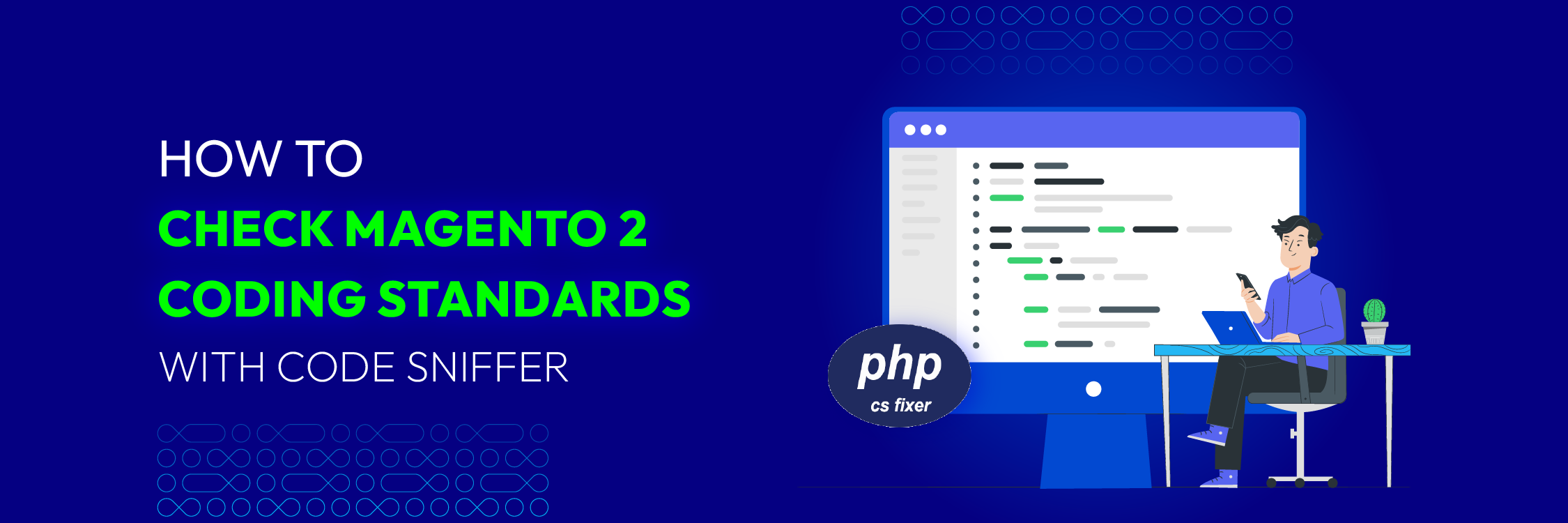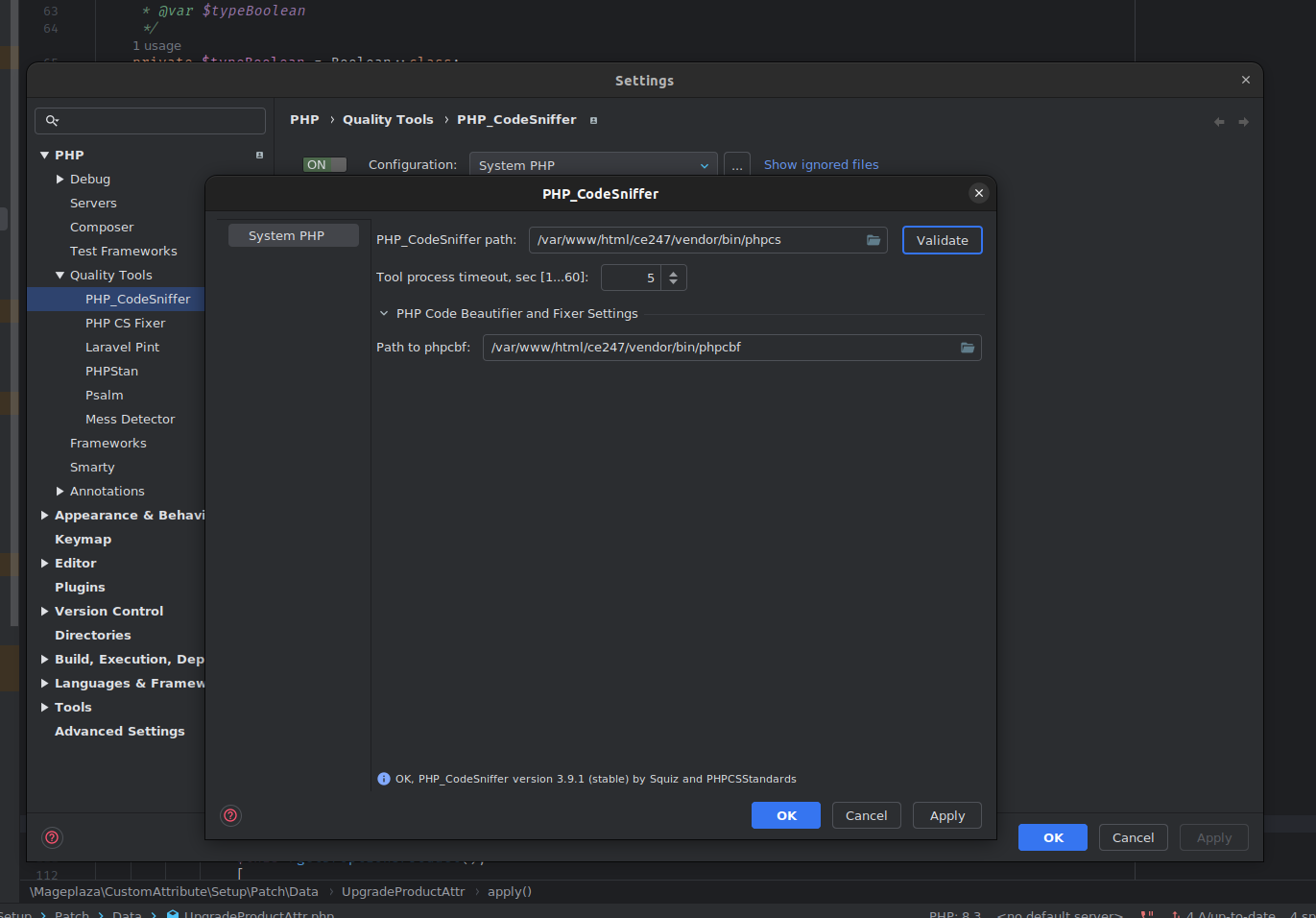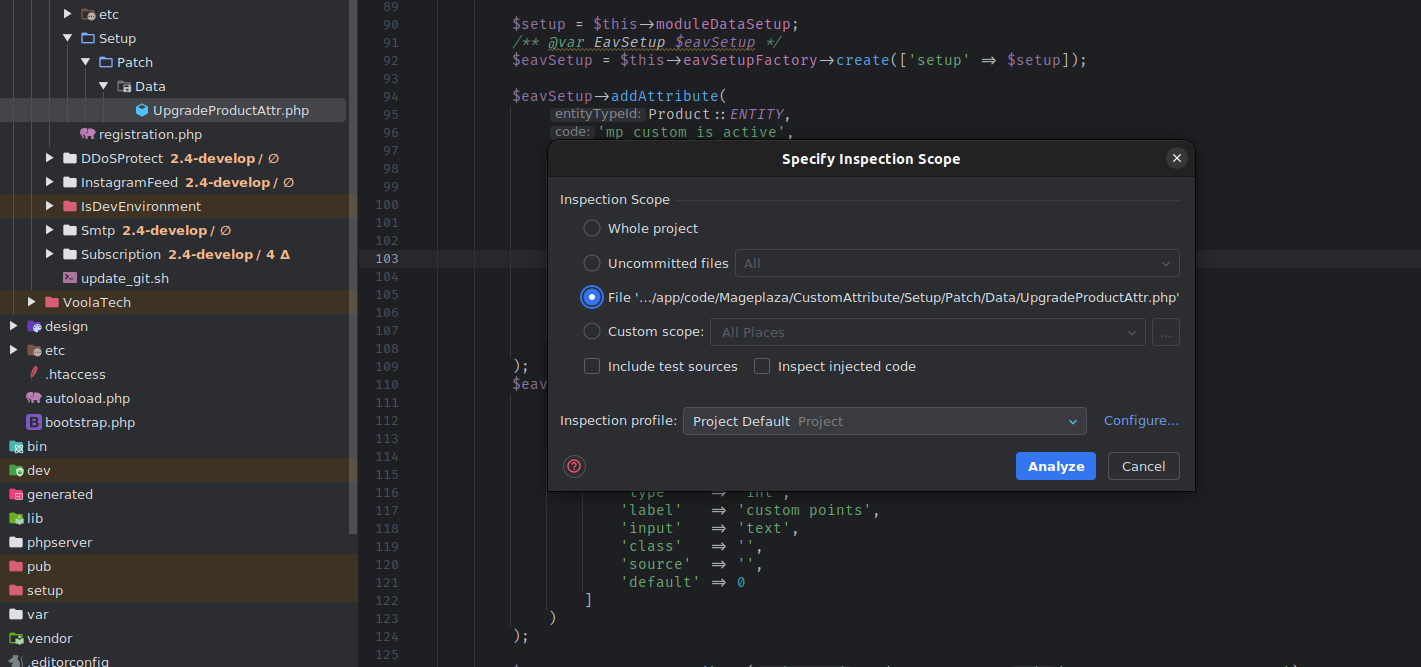Hyvä Theme is Now Open Source: What This Means for Magento Community - Mageplaza
Hyvä is now Open Source and free. Discover what changed, what remains commercial, how it impacts the Magento ecosystem, and how to maximize its full potential.
Cookies help us enhance your experience on our site by storing information about your preferences and interactions. You can customize your cookie settings by choosing which cookies to allow. Please note that disabling certain cookies might impact the functionality and features of our services, such as personalized content and suggestions. Cookie Policy
Cookie PolicyThese cookies are strictly necessary for the site to work and may not be disabled.
InformationThese cookies are strictly necessary for the site to work and may not be disabled.
| Cookie name | Description | Lifetime | Provider |
|---|---|---|---|
| _ce.clock_data | Store the difference in time from the server's time and the current browser. | 1 day | Crazy Egg |
| _ce.clock_event | Prevent repeated requests to the Clock API. | 1 day | Crazy Egg |
| _ce.irv | Store isReturning value during the session | Session | Crazy Egg |
| _ce.s | Track a recording visitor session unique ID, tracking host and start time | 1 year | Crazy Egg |
| _hjSessionUser_2909345 | Store a unique user identifier to track user sessions and interactions for analytics purposes. | 1 year | HotJar |
| _hjSession_2909345 | Store session data to identify and analyze individual user sessions. | 1 day | HotJar |
| apt.uid | Store a unique user identifier for tracking and personalization. | 1 year | Mageplaza |
| cebs | Store user preferences and settings. | Session | Mageplaza |
| cf_clearance | Store a token that indicates a user has passed a Cloudflare security challenge. | 1 year | Cloudflare |
| crisp-client | The crisp-client/session cookie is used to identify and maintain a user session within the Crisp platform. It allows the live chat system to recognize returning users, maintain chat history, and ensure continuity in customer service interactions. | Session | Crisp |
| _ga | Store a unique client identifier (Client ID) for tracking user interactions on the | 2 years | |
| _ga_7B0PZZW26Z | Store session state information for Google Analytics 4. | 2 years | |
| _ga_JTRV42NV3L | Store session state information for Google Analytics 4. | 2 years | |
| _ga_R3HWQ50MM4 | Store a unique client identifier (Client ID) for tracking user interactions on the website. | 2 years | |
| _gid | Store a unique client identifier (Client ID) for tracking user interactions on the website. | 1 day | |
| _gat_UA-76130628-1 | Throttle the request rate to Google Analytics servers. | 1 day |
Advertising cookies deliver ads relevant to your interests, limit ad frequency, and measure ad effectiveness.
InformationAdvertising cookies deliver ads relevant to your interests, limit ad frequency, and measure ad effectiveness.
| Cookie name | Description | Lifetime | Provider |
|---|---|---|---|
| _gcl_au | The cookie is used by Google to track and store conversions. | 1 day | |
| __Secure-3PAPISID | This cookie is used for targeting purposes to build a profile of the website visitor's interests in order to show relevant and personalized Google advertising. | 2 years | |
| HSID | This security cookie is used by Google to confirm visitor authenticity, prevent fraudulent use of login data and protect visitor data from unauthorized access. | 2 years | |
| __Secure-1PSID | This cookie is used for targeting purposes to build a profile of the website visitor's interests in order to show relevant and personalized Google advertising. | 2 years | |
| SID | This security cookie is used by Google to confirm visitor authenticity, prevent fraudulent use of login data and protect visitor data from unauthorized access. | 2 years | |
| APISID | This cookie is used by Google to display personalized advertisements on Google sites, based on recent searches and previous interactions. | 2 years | |
| __Secure-1PAPISID | This cookie is used for targeting purposes to build a profile of the website visitor's interests in order to show relevant and personalized Google advertising. | 2 years | |
| __Secure-3PSID | This cookie is used for targeting purposes to build a profile of the website visitor's interests in order to show relevant and personalized Google advertising. | 2 years | |
| SSID | This cookie is used by Google to display personalized advertisements on Google sites, based on recent searches and previous interactions. | 2 years | |
| SAPISID | This cookie is used by Google to display personalized advertisements on Google sites, based on recent searches and previous interactions. | 2 years | |
| __Secure-3PSIDTS | This cookie collects information about visitor's interactions with Google services and ads. It is used to measure advertising effectiveness and deliver personalised content based on interests. The cookie contains a unique identifier. | 2 years | |
| __Secure-1PSIDTS | This cookie collects information about visitor's interactions with Google services and ads. It is used to measure advertising effectiveness and deliver personalised content based on interests. The cookie contains a unique identifier. | 2 years | |
| SIDCC | This security cookie is used by Google to confirm visitor authenticity, prevent fraudulent use of login data, and protect visitor data from unauthorized access. | 3 months | |
| __Secure-1PSIDCC | This cookie is used for targeting purposes to build a profile of the website visitor's interests in order to show relevant and personalized Google advertising. | 1 year | |
| __Secure-3PSIDCC | This cookie is used for targeting purposes to build a profile of the website visitor's interests in order to show relevant and personalized Google advertising. | 1 year | |
| 1P_JAR | This cookie is a Google Analytics Cookie created by Google DoubleClick and used to show personalized advertisements (ads) based on previous visits to the website. | 1 month | |
| NID | Show Google ads in Google services for signed-out users. | 6 months |
Analytics cookies collect information and report website usage statistics without personally identifying individual visitors to Google.
InformationAnalytics cookies collect information and report website usage statistics without personally identifying individual visitors to Google.
| Cookie name | Description | Lifetime | Provider |
|---|---|---|---|
| _dc_gtm | Manage and deploy marketing tags through Google Tag Manager. | 1 year | |
| 1P_JAR | Gather website statistics and track conversion rates for Google AdWords campaigns. | 1 month | |
| AEC | 1 month | ||
| ar_debug | Debugging purposes related to augmented reality (AR) functionalities. | 1 month | Doubleclick |
| IDE | The IDE cookie is used by Google DoubleClick to register and report the user's actions after viewing or clicking on one of the advertiser's ads with the purpose of measuring the effectiveness of an ad and to present targeted ads to the user. | 1 year | Doubleclick |
| ad_storage | Enables storage, such as cookies (web) or device identifiers (apps), related to advertising. | 1 year | |
| ad_user_data | Sets consent for sending user data to Google for online advertising purposes. | 1 year | |
| ad_personalization | Sets consent for personalized advertising. | 1 year | |
| analytics_storage | Enables storage, such as cookies (web) or device identifiers (apps), related to analytics, for example, visit duration. | 1 year |

Variations in coding practices among Magento developers can create challenges when interpreting and understanding each other’s code. Non-standardized approaches are not only less efficient but also increase the risk of errors.
In Magento 2, adhering to coding standards is necessary for readability, maintainability, and consistency. To help enforce these standards, you should use a code sniffer, which analyzes your code and highlights deviations. Therefore, in this article, we’ll guide you on how to check Magento 2 coding standard using code sniffer.
The Magento coding standard is a set of rules designed for the PHP_CodeSniffer tool, specifically tailored to Magento projects. These standards help maintain consistent and high-quality code within Magento projects. Adhering to these standards ensures that your code follows best practices, making it easier to read, understand, and maintain.
composer require --dev magento/magento-coding-standard``
"scripts": {
"post-install-cmd": [
"([ $COMPOSER_DEV_MODE -eq 0 ] || vendor/bin/phpcs --config-set installed_paths ../../magento/magento-coding-standard/)"
],
"post-update-cmd": [
"([ $COMPOSER_DEV_MODE -eq 0 ] || vendor/bin/phpcs --config-set installed_paths ../../magento/magento-coding-standard/)"
]
}
git clone git@github.com:magento/magento-coding-standard.git
cd magento-coding-standard
composer install
composer create-project magento/magento-coding-standard --stability=dev magento-coding-standard
vendor/bin/phpcs --standard=Magento2 app/code/MyAwesomeExtension
vendor/bin/phpcbf --standard=Magento2 app/code/MyAwesomeExtension
Ex: For a special file
vendor/bin/phpcs app/code/Mageplaza/CustomAttribute/Setup/Patch/Data/UpgradeProductAttr.php --extensions=php,phtml
OR
Ex: For a directory
vendor/bin/phpcs app/code/Mageplaza/CustomAttribute/
--severity=10 --extensions=php,phtml

Let Setup like this in PHPStorm 2025
Go to the File > Settings > PHP > Quality Tools > PHP_CodeSniffer
Click to the … button
After that, you get this image

Click validate to show the OK message.
Then, select Magento 2 and enter the php, phtml-like image

The next step is to select the file or folder you want to check the code for.
Right-click, choose Inspect Code, and then select Analyze.


You can contribute by:
Document existing rules
Enhance existing rules
Propose new PHP CodeSniffer rules
Participate in discussions on new rules
Check the Community Dashboard for opportunities to contribute
The Magento Coding Standard classifies code sniffer violations into the following categories:
| Type | Severity | Description |
|---|---|---|
| Error | 10 | Critical issues in the code that could mean a bug or security risk |
| Warning | 9 | Possible security risks that might lead to bugs |
| Warning | 8 | Magento-specific code issues and design violations |
| Warning | 7 | General code issues |
| Warning | 6 | Code style issues |
| Warning | 5 | PHPDoc formatting and commenting issues |
Note that you may encounter the serious error type that must be fixed. Otherwise, your website is at high risk of being attacked or encountering errors in the future.
Checking Magento 2 coding standards using Code Sniffer is essential for maintaining a high-quality codebase. By adhering to consistent rules, you improve readability, collaboration, and long-term maintainability. Make Code Sniffer a part of your development workflow to ensure your Magento 2 projects meet the highest standards.
Feel free to explore the Magento Coding Standard repository for more details. If you have any other questions or need further assistance, feel free to ask!

Jacker is the Chief Technology Officer (CTO) at Mageplaza, bringing over 10 years of experience in Magento, Shopify, and other eCommerce platforms. With deep technical expertise, he has led numerous successful projects, optimizing and scaling online stores for global brands. Beyond his work in eCommerce development, he is passionate about running and swimming.
Related Post

Hyvä Theme is Now Open Source: What This Means for Magento Community - Mageplaza
Hyvä is now Open Source and free. Discover what changed, what remains commercial, how it impacts the Magento ecosystem, and how to maximize its full potential.





Holiday Marketing Hacks 2025 - How to Boost Sales for Magento 2 Stores? - Mageplaza
Discover the best 2025 holiday marketing strategies for Magento 2. Learn key trends, creative campaign ideas, and expert tips to increase seasonal sales.

Hyvä Theme is Now Open Source: What This Means for Magento Community - Mageplaza
Hyvä is now Open Source and free. Discover what changed, what remains commercial, how it impacts the Magento ecosystem, and how to maximize its full potential.





Holiday Marketing Hacks 2025 - How to Boost Sales for Magento 2 Stores? - Mageplaza
Discover the best 2025 holiday marketing strategies for Magento 2. Learn key trends, creative campaign ideas, and expert tips to increase seasonal sales.
